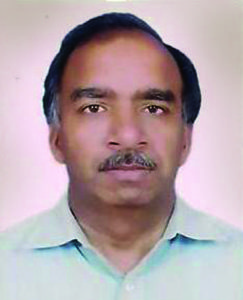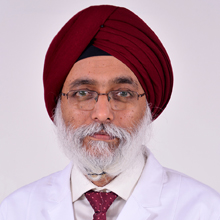Down in the Dumps
Depression is not merely a feeling of sadness but a serious illness that affects people of every age, educational level, and social and economic background. The World Health Organization characterizes depression as one of the most disabling disorders in the world, affecting roughly one in five women and one in ten men at some point in their lifetime.
By Abhigyan
Depression is a common but serious illness. People who experience depression need treatment to get better. The feelings like sadness, hopelessness, guilt, moodiness, angry outbursts, loss of interest in friends, family and favorite activities including sex point to the presence of depression. This also affects your thoughts and behaviour and your overall physical health.
The most common behaviours are withdrawing from people, substance abuse, missing work, school or other commitments and attempts to harm yourself. The persons who are under depression may face physical problems like tiredness or lack of energy, unexplained aches and pains, changes in appetite, weight loss and gain, changes in sleep – sleeping too little or too much and sexual problems
Alcohol and other substance abuse or dependence may also co-exist with depression. Research shows that mood disorders and substance abuse commonly occur together. Depression may also occur with other serious medical illnesses such as heart disease, stroke, cancer, HIV/AIDS, diabetes, and Parkinson’s disease. People who have depression along with other medical illness tend to have more severe symptoms of both depression and the medical illness, more difficulty adapting to their medical condition, and more medical costs than those who do not have co-existing depression. Treating the depression can also help improve the outcome of treating the co-occurring illness.
Most likely, depression is caused by a combination of genetic, biological, environmental, and psychological factors. Depressive illnesses are disorders of the brain. Longstanding theories about depression suggest that important neurotransmitters—chemicals that brain cells use to communicate—are out of balance in depression. But it has been difficult to prove this.
Brain-imaging technologies, such as magnetic resonance imaging (MRI), have shown that the brains of people who have depression look different than those of people without depression. The parts of the brain involved in mood, thinking, sleep, appetite, and behaviour appear different. But these images do not reveal why the depression has occurred. They also cannot be used to diagnose depression.
Some types of depression tend to run in families. However, depression can occur in people without family histories of depression too. Scientists are studying certain genes that may make some people more prone to depression. Some genetics research indicates that risk for depression results from the influence of several genes acting together with environmental or other factors. In addition, trauma, loss of a loved one, a difficult relationship, or any stressful situation may trigger a depressive episode. Other depressive episodes may occur with or without an obvious trigger.
Research indicates that depressive illnesses are disorders of the brain. Depression is more common among women than among men. Biological, life cycle, hormonal, and psychosocial factors that women experience may be linked to women’s higher depression rate. Researchers have shown that hormones directly affect the brain chemistry that controls emotions and mood. For example, women are especially vulnerable to developing postpartum depression after giving birth, when hormonal and physical changes and the new responsibility of caring for a newborn can be overwhelming.
Some women may also have a severe form of premenstrual syndrome (PMS) called premenstrual dysphoric disorder (PMDD). PMDD is associated with the hormonal changes that typically occur around ovulation and before menstruation begins.
During the transition into menopause, some women experience an increased risk for depression. In addition, osteoporosis—bone thinning or loss—may be associated with depression. Scientists are exploring all of these potential connections and how the cyclical rise and fall of estrogen and other hormones may affect a woman’s brain chemistry.
Finally, many women face the additional stresses of work and home responsibilities, caring for children and aging parents, abuse, poverty, and relationship strains. It is still unclear, though, why some women faced with enormous challenges develop depression, while others with similar challenges do not.
Men often experience depression differently than women. While women with depression are more likely to have feelings of sadness, worthlessness, and excessive guilt, men are more likely to be very tired, irritable, lose interest in once-pleasurable activities, and have difficulty in sleeping.
Men may be more likely than women to turn to alcohol or drugs when they are depressed. They also may become frustrated, discouraged, irritable, angry, and sometimes abusive. Some men throw themselves into their work to avoid talking about their depression with family or friends, or behave recklessly. And although more women attempt suicide, many men too die due to suicide.
Depression is not a normal part of aging. Studies show that most seniors feel satisfied with their lives, despite having more illnesses or physical problems. However, when older adults do have depression, it may be overlooked because seniors may show different, less obvious symptoms. They may be less likely to experience or admit to feelings of sadness or grief.
Sometimes it can be difficult to distinguish grief from major depression. Grief after loss of a loved one is a normal reaction to the loss and generally does not require professional mental health treatment. However, grief that is complicated and lasts for a very long time following a loss may require treatment. Researchers continue to study the relationship between complicated grief and major depression.
Older adults also may have more medical conditions such as heart disease, stroke, or cancer, which may cause depressive symptoms. Or they may be taking medications with side effects that contribute to depression. Some older adults may experience what doctors call vascular depression, also called arteriosclerotic depression or subcortical ischemic depression. Vascular depression may result when blood vessels become less flexible and harden over time, becoming constricted. Such hardening of vessels prevents normal blood flow to the body’s organs, including the brain. Those with vascular depression may have, or be at risk for, co-existing heart disease or stroke.
Although many people assume that the highest rates of suicide are among young people, older males too are vulnerable to it. Many have a depressive illness that their doctors are not aware of, even though many of these suicide victims visit their doctors within 1 month of their deaths.
Most older adults with depression improve when they receive treatment with an antidepressant, psychotherapy, or a combination of both. Research has shown that medication alone and combination treatment are both effective in reducing depression in older adults. Psychotherapy alone also can be effective in helping older adults stay free of depression, especially among those with minor depression. Psychotherapy is particularly useful for those who are unable or unwilling to take antidepressant medication.
Children who develop depression often continue to have episodes as they enter adulthood. Children who have depression also are more likely to have other more severe illnesses in adulthood.
 According to Dr Anup Mohta, Director, Chacha Nehru Bal Chikitsalaya, East Delhi, “Childhood depression often persists, recurs, and continues into adulthood, especially if left untreated. A child with depression may pretend to be sick, refuse to go to school, cling to a parent, or worry that a parent may die. Older children may sulk, get into trouble at school, be negative and irritable, and feel misunderstood. Because these signs may be viewed as normal mood swings typical of children as they move through developmental stages, it may be difficult to accurately diagnose a young person with depression.”
According to Dr Anup Mohta, Director, Chacha Nehru Bal Chikitsalaya, East Delhi, “Childhood depression often persists, recurs, and continues into adulthood, especially if left untreated. A child with depression may pretend to be sick, refuse to go to school, cling to a parent, or worry that a parent may die. Older children may sulk, get into trouble at school, be negative and irritable, and feel misunderstood. Because these signs may be viewed as normal mood swings typical of children as they move through developmental stages, it may be difficult to accurately diagnose a young person with depression.”
Before puberty, boys and girls are equally likely to develop depression. By age 15, however, girls are twice as likely as boys to have had a major depressive episode.
 According to Dr A K Aggarwal, Professor of Excellence and Medical Advisor, Apollo Group of Hospitals, “Depression during the teen years comes at a time of great personal change—when boys and girls are forming an identity apart from their parents, grappling with gender issues and emerging sexuality, and making independent decisions for the first time in their lives. Depression in adolescence frequently co-occurs with other disorders such as anxiety, eating disorders, or substance abuse. It can also lead to increased risk for suicide.”
According to Dr A K Aggarwal, Professor of Excellence and Medical Advisor, Apollo Group of Hospitals, “Depression during the teen years comes at a time of great personal change—when boys and girls are forming an identity apart from their parents, grappling with gender issues and emerging sexuality, and making independent decisions for the first time in their lives. Depression in adolescence frequently co-occurs with other disorders such as anxiety, eating disorders, or substance abuse. It can also lead to increased risk for suicide.”
Depression, even the most severe cases, can be effectively treated. The earlier that treatment can begin, the more effective it is.
Dr A K Aggarwal, said, “The first step to getting appropriate treatment is to visit a doctor or mental health specialist. Certain medications, and some medical conditions such as viruses or a thyroid disorder, can cause the same symptoms as depression. A doctor can rule out these possibilities by doing a physical exam, interview, and lab tests. If the doctor can find no medical condition that may be causing the depression, the next step is a psychological evaluation.”
 Dr Manisha Yadav, Medical Practitioner, New Delhi, said, “The doctor may refer you to a mental health professional, who should discuss with you any family history of depression or other mental disorder, and get a complete history of your symptoms. You should discuss when your symptoms started, how long they have lasted, how severe they are, and whether they have occurred before and if so, how they were treated. The mental health professional may also ask if you are using alcohol or drugs, and if you are thinking about death or suicide.”
Dr Manisha Yadav, Medical Practitioner, New Delhi, said, “The doctor may refer you to a mental health professional, who should discuss with you any family history of depression or other mental disorder, and get a complete history of your symptoms. You should discuss when your symptoms started, how long they have lasted, how severe they are, and whether they have occurred before and if so, how they were treated. The mental health professional may also ask if you are using alcohol or drugs, and if you are thinking about death or suicide.”
Once diagnosed, a person with depression can be treated in several ways. The most common treatments are medication and psychotherapy.
 According to Dr N P Singh, President, Hypertension Society of India, Max Multi Superspeciality Hospital, Vaishali, “All of us can expect to experience one or more of these symptoms on occasions. An occurrence of any one of these symptoms on its own does not constitute depression. When healthcare professionals suspect depression, they commonly look for clusters of these symptoms occurring regularly for two weeks or longer, and impacting functional aspects of the person’s life.”
According to Dr N P Singh, President, Hypertension Society of India, Max Multi Superspeciality Hospital, Vaishali, “All of us can expect to experience one or more of these symptoms on occasions. An occurrence of any one of these symptoms on its own does not constitute depression. When healthcare professionals suspect depression, they commonly look for clusters of these symptoms occurring regularly for two weeks or longer, and impacting functional aspects of the person’s life.”
In medical terms, depression is a real illness that impacts the brain. Anyone suffering from depression will tell you, it’s not imaginary or all in your head; depression is more than just feeling down. It is a serious illness caused by changes in brain chemistry. Research tells us that other factors contribute to the onset of depression, including genetics, changes in hormone levels, certain medical conditions, stress, grief or difficult life circumstances. Any of these factors alone or in combination can precipitate changes in brain chemistry that lead to depression’s many symptoms.
Men and women of every age, educational level, and social and economic background suffer from depression. There is no area of life that does not suffer when depression is present. Marriage, parenting, friendships, careers, finances – every aspect of daily living is compromised by this disease. Once an episode of depression occurs, it is also quite likely that it will recur. And the impact of depression can be even more severe when it occurs in combination with other medical illnesses such as diabetes, stroke, or cardiovascular disease, or with related disorders such as anxiety or substance abuse.
Dr R N Tandon, Secretary General, IMA Natio nal Wing, said, “The problems caused by depression are made worse by the fact that most people suffering from the disease are never diagnosed, let alone treated. The good news is that when depression is promptly identified and treated, its symptoms are manageable and there are many effective strategies for living with the disease. Depression and bipolar disorder are both treated most effectively in their earliest stages when symptoms are less severe.”
nal Wing, said, “The problems caused by depression are made worse by the fact that most people suffering from the disease are never diagnosed, let alone treated. The good news is that when depression is promptly identified and treated, its symptoms are manageable and there are many effective strategies for living with the disease. Depression and bipolar disorder are both treated most effectively in their earliest stages when symptoms are less severe.”
 Dr Arvind Garg, Senior Child Specialist, Apollo Hospital, Noida, said, “Although, scientists agree that depression is a brain disorder, the debate continues about exact causes. Many factors may contribute to the onset of depression, including genetic characteristics, changes in hormone levels, certain medical illnesses, stress, grief, or substance abuse. Any of these factors alone or in combination can bring about the specific changes in brain chemistry that lead to the many symptoms of depression, bipolar disorder and related conditions.”
Dr Arvind Garg, Senior Child Specialist, Apollo Hospital, Noida, said, “Although, scientists agree that depression is a brain disorder, the debate continues about exact causes. Many factors may contribute to the onset of depression, including genetic characteristics, changes in hormone levels, certain medical illnesses, stress, grief, or substance abuse. Any of these factors alone or in combination can bring about the specific changes in brain chemistry that lead to the many symptoms of depression, bipolar disorder and related conditions.”
Together with a healthcare provider, you can find out whether what you are experiencing is depression or bipolar disorder, and chart a course to feeling and functioning better. You can start that conversation with your primary care physician or nurse practitioner or with a community health professional. Prior to engaging your doctor or healthcare provider, you may find it helpful to know more about how depression and bipolar disorder are diagnosed. Experts commonly employ a series of questions called a screening tool to identify depression.
 Said Dr Vinay Aggarwal, Director, Crosslay Remedies Ltd, “There are several strategies for treating depression. Depending upon each individual’s characteristics and symptoms, healthcare professionals may employ one or more types of psychotherapy that rely upon a sequence of interpersonal treatment sessions with a trained professional. In addition, clinicians may suggest that a patient try one of a number of different medications. Lifestyle changes, including improvements in sleeping and eating habits, physical activity and stress reduction have also proven very helpful in managing symptoms.”
Said Dr Vinay Aggarwal, Director, Crosslay Remedies Ltd, “There are several strategies for treating depression. Depending upon each individual’s characteristics and symptoms, healthcare professionals may employ one or more types of psychotherapy that rely upon a sequence of interpersonal treatment sessions with a trained professional. In addition, clinicians may suggest that a patient try one of a number of different medications. Lifestyle changes, including improvements in sleeping and eating habits, physical activity and stress reduction have also proven very helpful in managing symptoms.”
Depression is a serious condition. It’s also, unfortunately, a common one. The World Health Organization characterizes depression as one of the most disabling disorders in the world, affecting roughly one in five women and one in ten men at some point in their lifetime.
Fight the Blues
You can fight depressive tendencies with the right kind of medical advice, psychotherapy and most importantly, your will power!
By Dr Satya Prakash
Out of all the ailments engulfing the human system, the mental problems are the worst and most agonizing, which put the patient and the family both in the most traumatic situation. Mental disorders are psychobiologic phenomena because of intricate brain mechanism. The most prevalent and important diagnostic situation among mood disorders are major depression and manic depressive illness. It becomes a tough problem to deal with patients suffering from mild depression not ill enough to be hospitalized yet not adjustable with the family environment. What to do with such patients? It presents a great dilemma.
To achieve success and progress, one has to be ambitious, but a particular ambition should not be beyond the capacity of the person. One has to struggle to achieve the goal, failing which the person should not go into a feeling of depression with its negative consequences.
Depressive episodes can be observed in conjunction with usually every mental disorder including schizophrenia, anxiety disorders, alcoholism, dementia and personality disorders. Mood disorders may be associated with certain systemic diseases like hypo/hyperthyroidism, hyperpara thyroidism, systemic lupus erythimatosis, malignaneis, Vit-B deficiency etc. It may be due to certain drug induced like steroids, methyl dopa, propanolol, anti-cancer drugs, prolonged administration of anti-hypertensive drugs or may be withdrawal of drugs like cocaine, amphetamine etc.
Major depressive episodes are termed to have sustained at least for two weeks and manic episodes lasting at least for one week.
Signs and symptoms of Depression:
Marked diminished interest in everything
Significant weight loss/ weight gain when not dieting
Sleeplessness or hypersonia every day
Fatigue and less of energy every day
Hopelessness, feeling of worthlessness and guilt,
Decreased ability to think or concentrate
Difficulty in making decisions
Sexual weakness and vice versa
Suicidal tendency is one of the most important symptoms that accompany major depression
20% get a manic episode and then go into manic-depressive disease
Depressive episodes are more common in females than men where as manic episodes are more common in males
Significant genetic influence may be seen.
Once acute depression/manic episode is under control, psychotherapy is a useful adjunct to drug therapy.Pharmaco therapy with/without ECT (Electro Convulsive Therapy) are the advocated line of management under an experienced psychiatrist.
(The author is well-known physician and Retd CMO, Govt Hospital, Ghaziabad)


